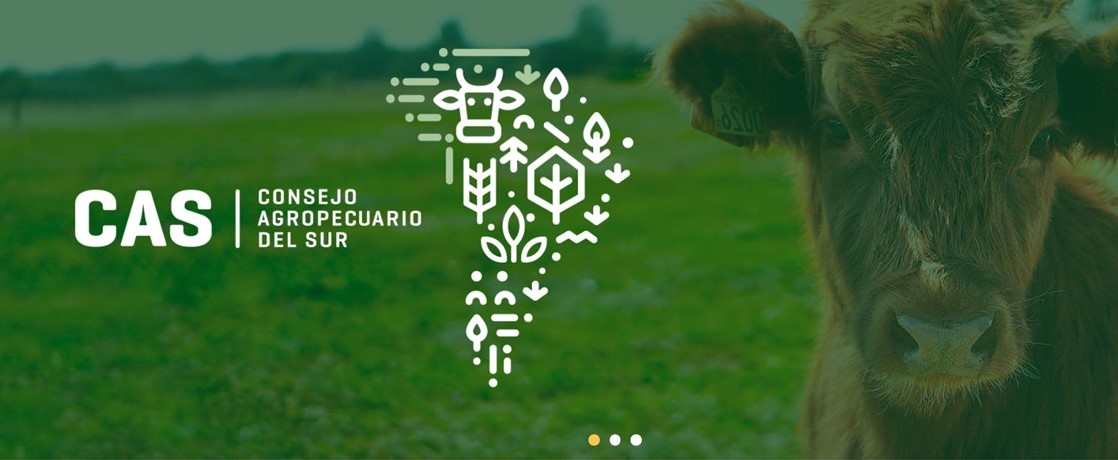CAS is an organization through which its six member countries define priorities for the agricultural agenda and adopt positions on issues of regional interest, with a view to coordinating the development of agreed actions.

Buenos Aires, 5 September 2023 (IICA) – The Southern Agricultural Council (CAS) celebrated its first 20 years of existence, having played a strategic role as a forum for consultation and coordination of regional actions among the ministries of Agriculture of Argentina, Bolivia, Brazil, Chile, Paraguay and Uruguay.
During the XLVI Regular Meeting in Buenos Aires, ministers and senior officials of the countries were awarded a commemorative plaque to mark the anniversary by the Inter-American Institute for Cooperation on Agricultura (IICA), which serves as the Technical Secretariat of CAS, as part of its ongoing efforts to facilitate collective action by and integration among the countries.
CAS was formed in 2003, by way of a Convention signed in Brasilia. The decision to establish it was triggered by a foot-and-mouth disease outbreak that had affected several countries in the region, with serious economic and health implications. As such, the ministers recognized the need for a permanent forum for regional dialogue, discussion, collaboration and policy coordination to address priority matters for the sector.
Since that time, CAS has become an essential body, through which its six member countries define priorities for the agricultural agenda and adopt positions on issues of regional interest, with a view to coordinating the development of agreed actions. Among the issues on which CAS has developed an integrated perspective with respect to the needs of the region as a whole, are food security, sectoral policies, international negotiations, plant and animal health, food safety, human resource development, technology and innovation.
Fernando Mattos, Minister of Livestock, Agriculture and Fisheries of Uruguay, and President pro-tempore of CAS, maintained that, “This region is key to global food security, given its large agricultural production output. Thus, its participation in international food trade and in exchange and working forums, such as CAS, are indispensable to developing joint policies and strategies that will enable us to address the major challenge of ensuring economically profitable, socially responsible and environmentally sustainable production”.
On the other hand, Manuel Otero, Director General of IICA, celebrated the anniversary of CAS, recalling the countless areas and sectors in which the countries are intensifying their reciprocal collaboration to successfully address problems and make better use of shared opportunities.
“Twenty years after its creation, as we ratify the importance of this coordination forum for integration of the agriculture sector of MERCOSUR, we can point to an enormous array of areas of cooperation, namely health, food security, trade, value chain integration, biotechnology and family farming, all of which have allowed the countries to share experiences and information that are essential and enriching for state governance”.
CAS has demonstrated that agriculture is indispensable, not only to food security, but also to the economic and social development of the countries and is therefore part of the solution to the challenges facing the planet.
He also stressed the pivotal role of unrestricted international free trade in global food security.
Joint actions
As a regional technical support body, the Council has an Agricultural Policy Coordination Network (REDPA), consisting of the directors of Agricultural Policy and the technical teams of the ministries of Agriculture of the six countries.
The objective of REDPA is to analyze agricultural policy in the CAS countries and to identify short- and medium-term joint actions in relation to agricultural policy and international cooperation. It operates by way of specialized groups that are currently focusing on: Information Systems and Agricultural Policy Analysis; Market Information Systems; Risk Management and Agricultural Insurance: Public Policies on Climate Change; Public Policies on Biotechnology; Public Policies on Agroenergy; Associative Enterprises and Beekeeping.
The institutional framework of CAS is complemented by other regional mechanisms, such as the Plant Health Committee (COSAVE) and Permanent Veterinary Committee (PVC) of the Southern Cone and the Cooperative Program for the Development of Agrifood and Agroindustrial Technology in the Southern Cone (PROCISUR). During its twenty-year lifespan, CAS has played an ongoing coordination role in terms of health matters – a role that assumed even greater importance during the COVID-19 pandemic. It has also been instrumental in coordinating unified positions on the importance of focusing on three dimensions of sustainable food production – economic, social and environmental.
More information:
Institutional Communication Division.
comunicacion.institucional@iica.int











